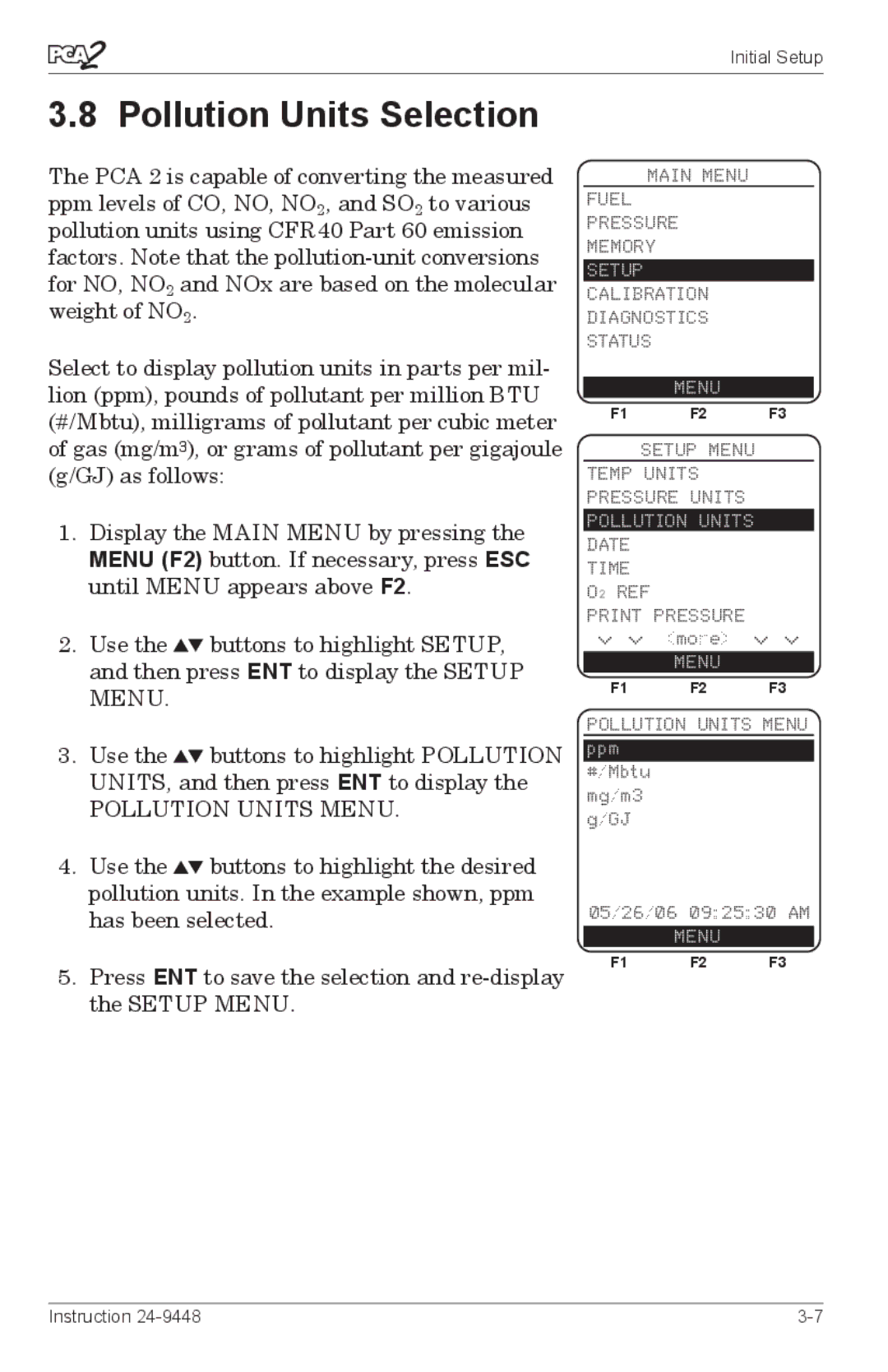24-9448 specifications
The Bacharach 24-9448 is a sophisticated instrument designed for detecting and measuring hazardous gases, particularly in environmental and industrial settings. Renowned for its accuracy and reliability, this portable gas analyzer serves a crucial role in ensuring safety and compliance in various applications, including HVAC, refrigeration, and environmental monitoring.One of the standout features of the 24-9448 is its advanced sensor technology. The device utilizes electrochemical sensors that provide real-time readings of specific gas concentrations, including carbon monoxide, carbon dioxide, and other toxic gases. These sensors are designed to be sensitive and selective, ensuring they deliver precise measurements without interference from other substances in the environment. This is particularly important in industrial settings where multiple gases may be present.
The Bacharach 24-9448 also boasts a user-friendly interface with a clear display that makes it easy for operators to interpret results quickly. The unit features a simple menu navigation system, allowing users to access different functions without hassle. This design consideration enhances usability, especially in high-pressure situations where every second counts.
Portability is another key characteristic of the 24-9448. Weighing in at just a few pounds, it is easy to transport and operate in various locations, whether it be on a job site or in an environmental monitoring scenario. The robust housing is designed to withstand the rigors of fieldwork, ensuring longevity and durability despite challenging conditions.
Moreover, the device includes data logging capabilities, enabling users to store and later review measurements. This feature is essential for compliance documentation and for analyzing trends over time. Users can download data for further analysis, aiding in thorough reporting and decision-making processes.
In addition to its core capabilities, the Bacharach 24-9448 offers flexibility with adjustable calibration settings, accommodating different gas types and concentration ranges. This adaptability ensures it can meet the specific needs of diverse applications, making it a versatile tool in the field.
Overall, the Bacharach 24-9448 is an essential instrument for professionals in various sectors. Its combination of advanced sensor technology, user-friendly design, portability, and data logging capabilities solidifies its position as a leading choice for gas detection and measurement. Whether for routine checks or emergency responses, this analyzer provides the reliability that ensures safety in potentially hazardous environments.

